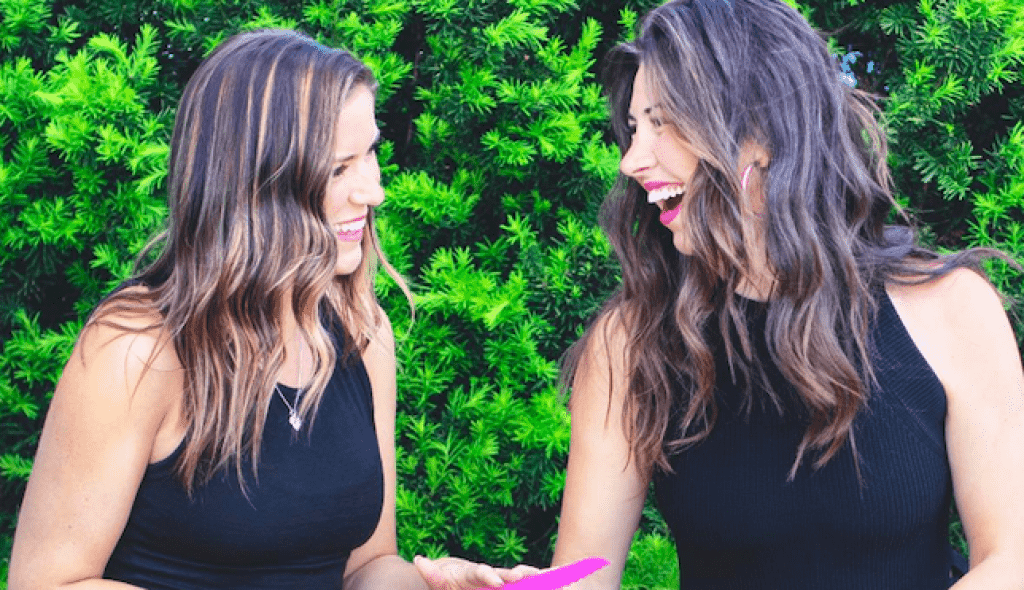Every afternoon, people tune into Instagram Live for “snack time and chill.” The hosts enjoy a snack, joke around, and chat about life, love, and the pursuit of health and happiness. The people watching could be there simply because it’s a fun hang out. But they’re not.
Snack time and chill is the brainchild of Ali Eberhardt and Hannah Robinson, registered dietitians with St. Paul’s provincial eating disorders program. For the people who tune in, the broadcast is more than just a hilarious half hour of snacking and chilling: it’s a lifeline.
Together with their companion podcast, Let Us Eat Cake, Ali and Hannah are reaching out across BC to provide meal support, coping strategies, and the healing power of connection.
Sometimes laughter and Instagram are the best medicine
You might wonder about using podcasts and Instagram as part of a treatment program for a serious medical condition. But St. Paul’s and the Adult Eating Disorders Program have always been about helping people wherever they are and in whatever way works best for them.
This approach is especially important now according to Dr. Julia Raudzus, a psychiatrist, eating disorder specialist, and the Medical Director of the Eating Disorders Program.
“Imagine you have a condition that compels you to isolate yourself. Imagine how much more anxiety and stress that’s causing during this pandemic? Listening to Hannah and Ali’s podcasts and tuning into the Instagram snack chat are low impact, compassionate ways to reach those clients right where they are.”
Casting an even bigger safety net
Because the program treats people from right across BC, arms-length supports were in place long before the pandemic. “But when it became clear we were going into lockdown, we mobilized quickly to create an even-more-robust safety net.”
The challenge, she says, was to deploy those resources to all of their clients. “We needed to reach our community-based clients across BC, as well as those at St. Paul’s in day programs and in-patients care who were being discharged to make space for the potential surge from COVID-19.”
Dr. Raudzus and the team hit the ground running. They assigned each client to a case management team made up of social work, occupational therapy, nurses, dietitians, and psychiatrists to ensure multiple touch points for every patient. They liaised with community programs and primary care providers. They tapped into Zoom to create group and 1:1 sessions. And they started a weekly newsletter for patients and families.
“These aren’t replacements for face-to-face care. But they allow us to connect with our clients while respecting the need to stay home and to minimize travel.”
Interestingly, despite the program’s ability to deliver its services in newfangled ways, Dr. Raudzus says that many clients actually prefer old school phone calls. “They feel vulnerable about being seen, especially being seen at home. So it’s important to offer non-clinical options, like phone calls and the Let Us Eat Cake podcast.”
All hands on deck
Of course, successful treatment also depends on a network of family doctors, regional hospitals, and community-based services. “As soon as we went into lockdown, we connected with those partners to protect clients from falling through the cracks,” say Dr. Raudzus.
They reached out to remind family doctors about resources including a GP toolkit for treating eating disorders and a reminder about the RACE line. Developed at St. Paul’s, the RACE line gives doctors and nurse practitioners almost-instant access to experts from some 40 specializations including eating disorders and psychiatry.
It’s a testament to the team’s commitment to their patients that Dr. Raudzus gives the last word to Sierra, a former in-patient. Sierra is using the tools she learned at St. Paul’s to manage her illness, navigate the pandemic, and find the courage to look toward the future. In an email to Dr. Raudzus, she writes:
“I wanted to write to you, with a weird sense of gratitude…. I admit, the global pandemic initially filled me with a lot of fear. Then I realized: I’ve got quite a lot of training in this! … Now, I’m focusing on the idea that we have time to slow down; to sit in this discomfort; to be more present and mindful; and to connect in NEW ways with others. I am a work in progress … and even though we are in darker times, there’s definitely more light in my life!”
Sometimes the most compassionate treatment for a person living with an eating disorder is the opportunity to tune into social media for a snack and some corny jokes. Donors like you make it possible to provide this simple, yet powerful experience. Please give to the COVID-19 Response Fund today to support difference-making programs like this one. Thank you!
You can download “Let Us Eat Cake” wherever you get your podcasts. Tune in to Instagram Live @eatcakepod weekdays at 3 PM.
